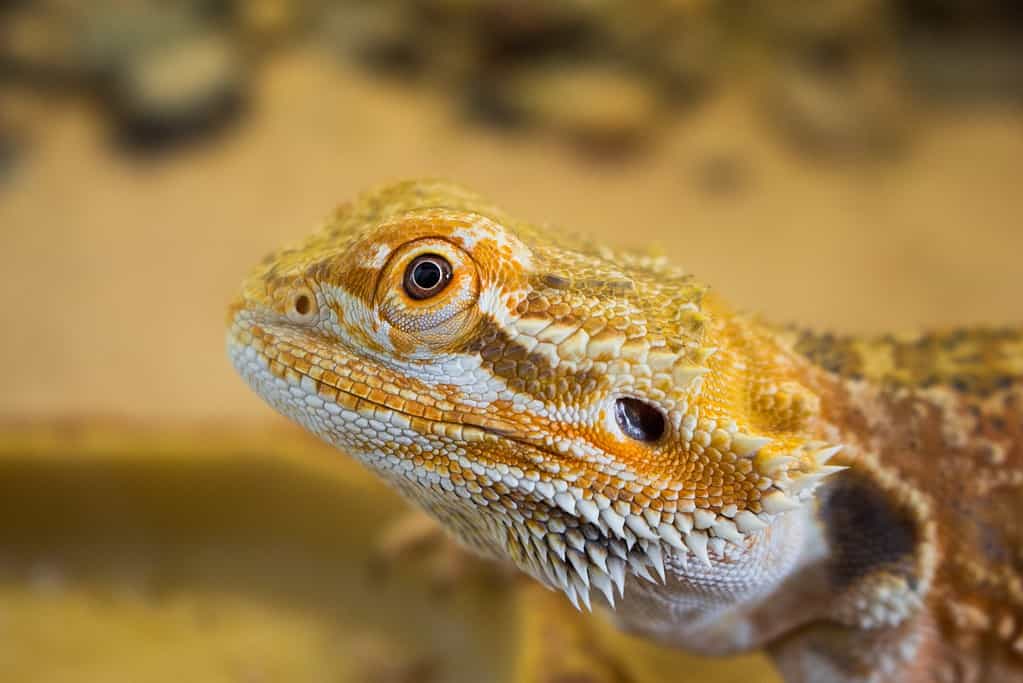Understanding The Social Behavior Of Bearded Dragons
Are bearded dragons social creatures? This intriguing question resonates with many potential reptile owners and enthusiasts alike. Unlike some reptiles that prefer solitude, bearded dragons exhibit a range of social behaviors that can shape their interactions with humans and other pets. Understanding their social dynamics is crucial for ensuring their well-being and happiness in captivity. As social animals, bearded dragons have unique personalities and can develop bonds with their owners. However, their social needs and behaviors can vary significantly from one individual to another.
In this article, we will explore the nuances of bearded dragon social behavior, delving into their interactions with humans and other reptiles. We will also discuss how to foster a positive environment for these fascinating creatures, ensuring they thrive in both social and solitary settings. Whether you're a seasoned reptile keeper or a curious newcomer, understanding the social nature of bearded dragons will enhance your experience with these captivating reptiles.
Join us as we unravel the complexities of bearded dragon socialization and find out if they truly are the social butterflies of the reptile world!
What Makes Bearded Dragons Social?
Bearded dragons, native to Australia, are known for their unique personalities and behaviors. They are not only visually stunning but also exhibit social interactions that can surprise many. Unlike other reptiles that may prefer isolation, bearded dragons can display friendship and affection towards their owners and, sometimes, other dragons.
Do Bearded Dragons Like to Be Handled?
When it comes to handling, bearded dragons can be quite receptive. They often enjoy being held and may even seek out human interaction. Here are some key points to consider:
- Many bearded dragons will become accustomed to being handled if done gently and regularly.
- They may show signs of affection, such as climbing onto their owner's shoulder or resting comfortably in their hands.
- However, some individuals may prefer to stay in their enclosure, so it's essential to respect their preferences.
Are Bearded Dragons Social with Other Reptiles?
While bearded dragons can be social, their interactions with other reptiles require careful consideration. Not all reptiles get along, and bearded dragons can exhibit territorial behavior.
Can Bearded Dragons Live Together?
Housing multiple bearded dragons together can be risky. Here are some factors to consider:
- Bearded dragons are territorial and may fight if kept together in a confined space.
- Juveniles can sometimes coexist peacefully, but adult dragons may not tolerate each other.
- It's essential to monitor their behavior closely if they are housed together.
What is the Ideal Social Environment for Bearded Dragons?
Creating a suitable environment for social interaction is vital for bearded dragons. Here are some tips:
- Provide ample space in their enclosure to avoid territorial disputes.
- Include hiding spots and basking areas to ensure they have a safe retreat.
- Interact with them daily to strengthen your bond and help them feel secure.
How Do Bearded Dragons Communicate?
Communication among bearded dragons and their owners is fascinating. They use various forms of body language and vocalizations to express their feelings:
What are the Signs of a Happy Bearded Dragon?
Recognizing a happy and content bearded dragon is essential for their well-being. Here are some indicators:
- Arm waving: This behavior can indicate submission or a friendly greeting.
- Color changes: A relaxed dragon will often display brighter colors.
- Active behavior: A happy bearded dragon will explore its surroundings and bask in the light.
How Can You Tell if Your Bearded Dragon is Stressed?
Conversely, signs of stress should not be overlooked. A stressed bearded dragon may exhibit the following behaviors:
- Darkening of the skin: A stressed dragon may turn darker in color.
- Hiding: Excessive hiding can indicate discomfort or fear.
- Loss of appetite: A decrease in food intake may signal stress.
What Should You Know Before Getting a Bearded Dragon?
Before bringing a bearded dragon into your home, consider their social needs and the commitment required. Here are some tips for prospective owners:
- Research their care requirements, including habitat, diet, and socialization needs.
- Consider adopting an adult dragon that may be more predictable in behavior compared to a juvenile.
- Ensure you have sufficient time to interact and bond with your bearded dragon.
Are Bearded Dragons Right for You?
Ultimately, deciding to bring a bearded dragon into your life requires careful consideration of their social nature and your lifestyle. While they can be social and engaging pets, they also need a dedicated owner who understands their unique needs.
In conclusion, understanding whether bearded dragons are social involves examining their interactions with humans and other reptiles. By creating a nurturing environment and respecting their boundaries, you can enjoy a fulfilling relationship with these remarkable creatures. Remember that every bearded dragon has its personality, so observe and adapt to their social needs for the best experience possible!
Exploring The Influence Of Jamal Musiala's Mother On His Journey
Lily Gladstone's Real-Life Journey: Who Is Her Husband?
Discovering Tyla: An Insight Into Tyla's Weight And Height


